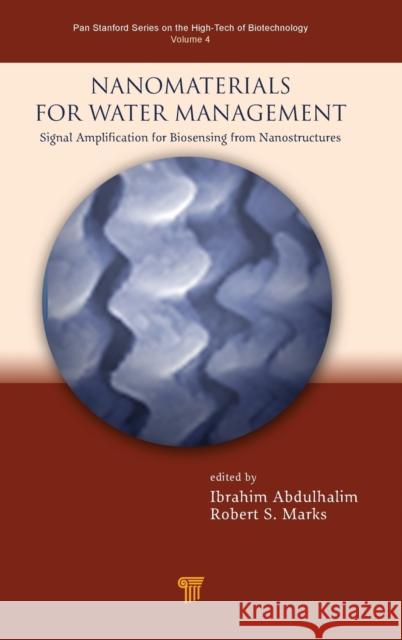Nanomaterials for Water Management: Signal Amplification for Biosensing from Nanostructures » książka
Nanomaterials for Water Management: Signal Amplification for Biosensing from Nanostructures
ISBN-13: 9789814463478 / Twarda / 2015 / 238 str.
The interest in finding reliable and highly sensitive sensors for water quality control has grown recently empowered by the explosion of cutting-edge technologies such as nanotechnologies, optoelectronics, and computing on one hand and by the increasing need for more secure control of water quality on the other hand. This book highlights a number of modern topics in the field of biosensing particularly for water sensing in which the signal is enhanced, starting from surface enhanced spectroscopies using plasmonic structures such as Raman scattering (SERS), infrared enhanced absorption (SEIRA), and surface enhanced fluorescence (SEF).
The interest in finding reliable and highly sensitive sensors for water quality control has grown recently empowered by the explosion of cutting-edge technologies such as nanotechnologies, optoelectronics, and computing on one hand and by the increasing need for more secure control of water quality on the other hand. This book highlights a number of modern topics in the field of biosensing particularly for water sensing in which the signal is enhanced, starting from surface enhanced spectroscopies using plasmonic structures such as Raman scattering (SERS), infrared enhanced absorption (SEIRA), and surface enhanced fluorescence (SEF). The SPR enhanced detection is highlighted in two chapters and addressed using signal processing and the use of color of solutions as a result of modification of the LSPR properties of nanoparticles. Porous materials are another field of research where the enhancement is achieved due to the increasing the area- to-volume ratio. Good examples are the two emerging fields of porous Si and sculptured thin films prepared by the oblique deposition technique. One of the long standing problems is bacteria detection in water which is addressed thoroughly with emphasis on the problems usually encountered in detecting large bioentities.











